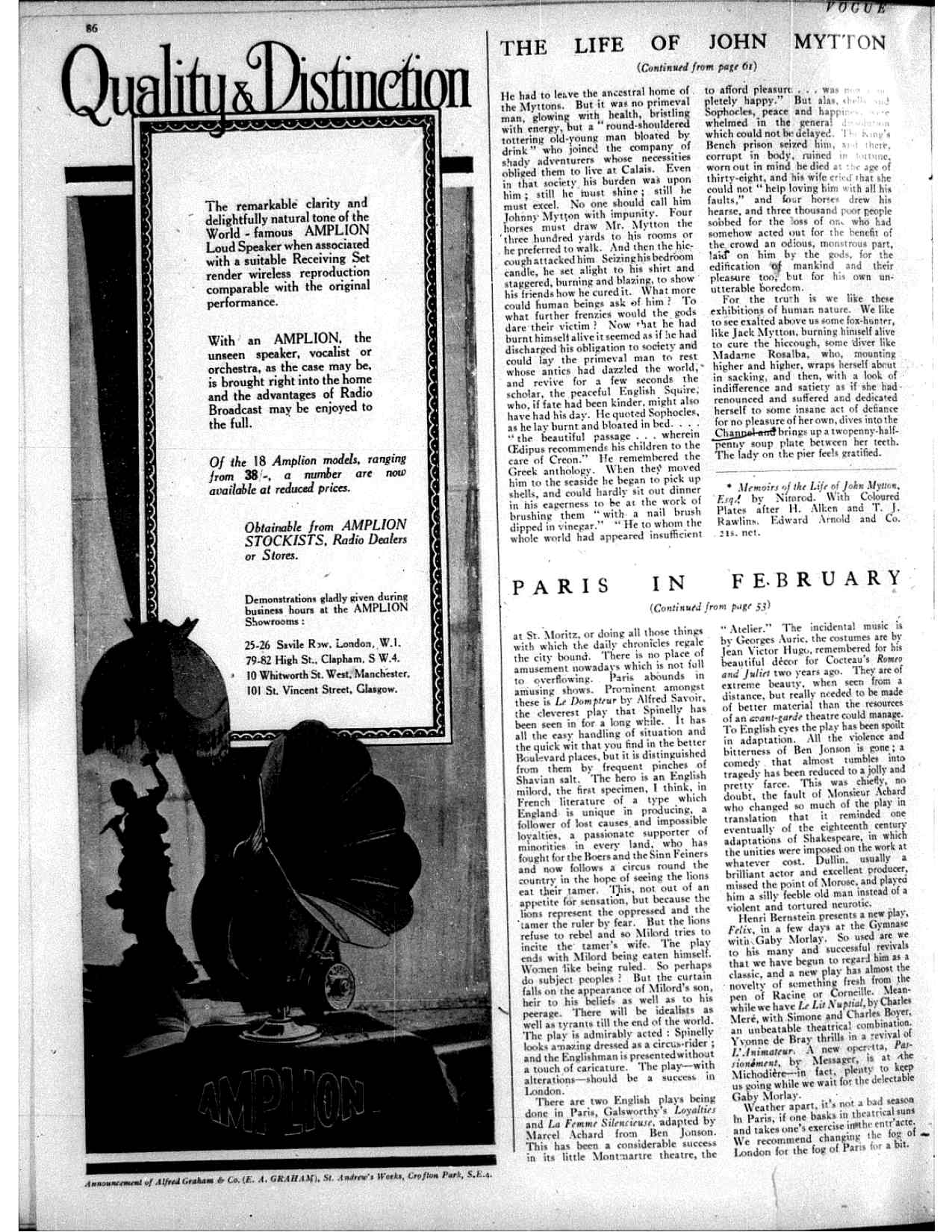
He had to leave the ancestral home of
the Myttons. But it was no primeval
man, glowing with health, bristling
with energy, but a “round-shouldered
tottering old-young man bloated by
drink” who joined the company of
shady adventurers whose necessities
obliged them to live at Calais. Even
in that society his burden was upon
him; still he must shine; still he
must excel. No one should call him
Johnny Mytton with impunity. Four
horses must draw Mr. Mytton the
three hundred yards to his rooms or
he preferred to walk. And then the hic-
cough attacked him. Seizing his bedroom
candle, he set alight to his shirt and
staggered, burning and blazing, to show
his friends how he cured it. What more
could human beings ask of him? To
what further frenzies would the gods
dare their victim? Now that he had
burnt himself alive it seemed as if he had
discharged his obligation to society and
could lay the primeval man to rest
whose antics had dazzled the world,
and revive for a few seconds the
scholar, the peaceful English Squire,
who, if fate had been kinder, might also
have had his day. He quoted Sophocles,
as he lay burnt and bloated in bed….
“the beautiful passage . . . wherein
Ĺ’dipus recommends his children to the
care of Creon.” He remembered the
Greek anthology. When they moved
him to the seaside he began to pick up
shells, and could hardly sit out dinner
in his eagerness to be at the work of
brushing them “with a nail brush
dipped in vinegar.” “He to whom the
whole world had appeared insufficient
[new column]
to afford pleasure . . . was now com-
pletely happy.” But alas, shells and
Sophocles, peace and happiness, were
whelmed in the general dissolution
which could not be delayed. The King's
Bench prison seized him, and there,
corrupt in body, ruined in fortune,
worn out in mind he died at the age of
thirty-eight, and his wife cried that she
could not “help loving him with all his
faults,” and four horses drew his
hearse, and three thousand poor people
sobbed for the loss of one who had
somehow acted out for the benefit of
the crowd an odious, monstrous part,
laid on him by the gods, for the
edification of mankind and their
pleasure too, but for his own un-
utterable boredom.
For the truth is we like these
exhibitions of human nature. We like
to see exalted above us some fox-hunter,
like Jack Mytton, burning himself alive
to cure the hiccough, some diver like
Madame Rosalba, who, mounting
higher and higher, wraps herself about
in sacking, and then, with a look of
indifference and satiety as if she had
renounced and suffered and dedicated
herself to some insane act of defiance
for no pleasure of her own, dives into the
Channel and brings up a twopenny-half-
penny soup plate between her teeth.
The lady on the pier feels gratified.






